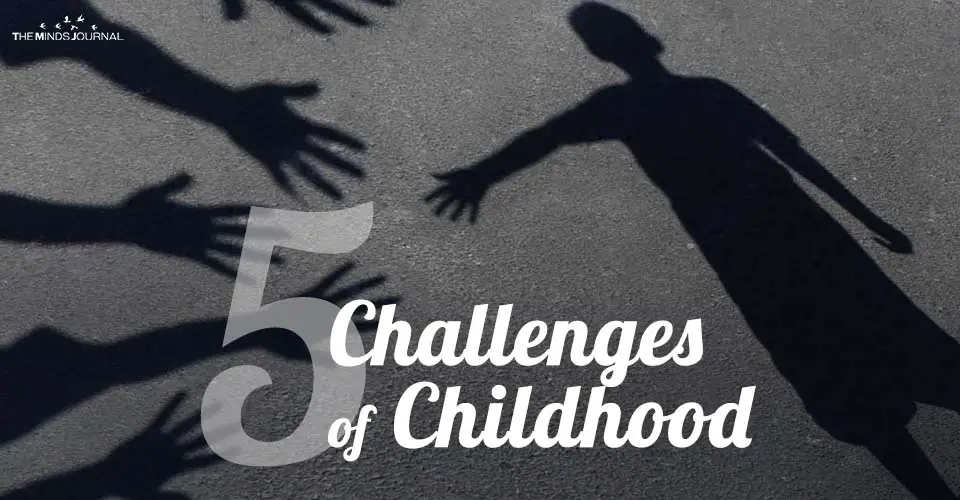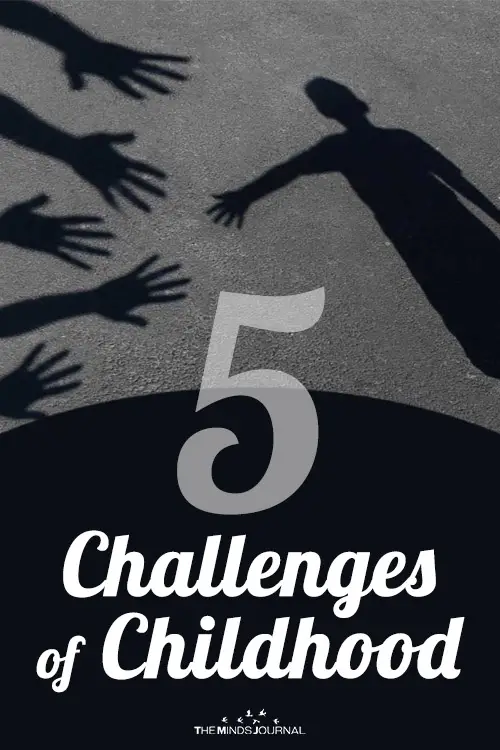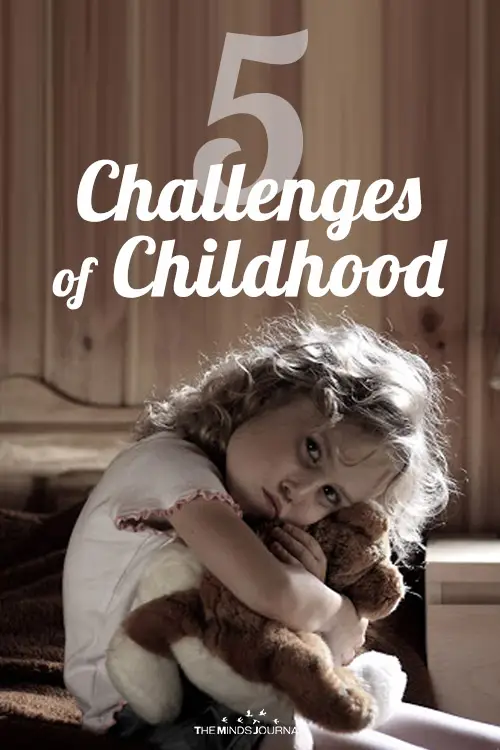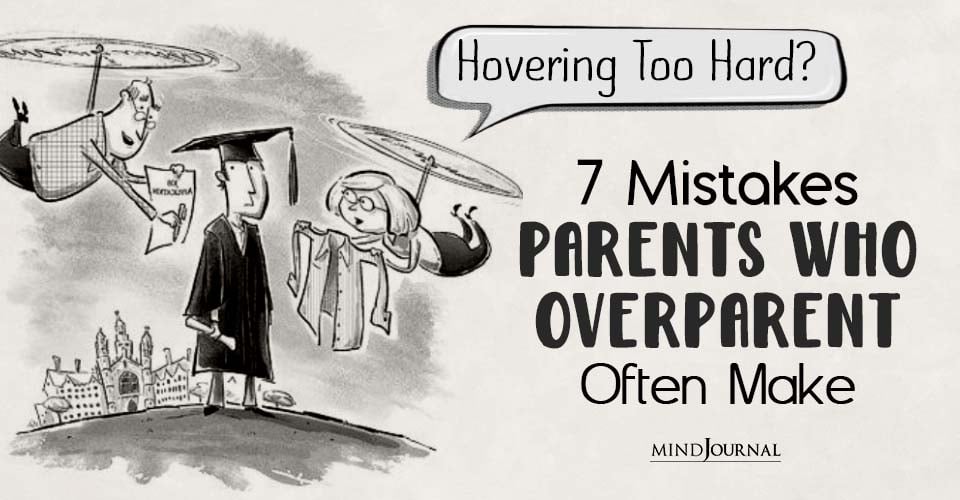Childhood Challenges we hardly talk about
Ever wonder why being a child is (sometimes) so hard?
As grownups, a lot of times you tend to believe that your childhood was better and simpler than your adult life and that children never have any problems or challenges. Well, even though children do not go through the same things as adults do, they have their own set of childhood challenges that they go through.
The gem cannot be polished without friction, nor man perfected without trials.” —Chinese Proverb
5 Challenges of Childhood
Being small and new to the world has its challenges. Said differently, there are some common challenges that occur in childhood regardless of where you live, what you look like, and who your parents are. Some of those intrinsic obstacles are:
1. Lack of experience
Children believe that everything that’s happening to them is the worst ever. They simply don’t have the experience and wider perspective to realize what a real problem is (for example, someone committing suicide) versus a temporary challenge (for example, getting poison ivy). Of course, it is good news when children are innocent, but their lack of experience limits their ability to perceive things accurately.
2. Lack of knowledge
Boys and girls often don’t have the training needed to handle challenging emotions. For example, Jenna didn’t know how to handle her intense anger, and she threw a chair across her classroom. Thankfully no one was hurt, but it did land her in the principal’s office. Of course, the good news is that when Jenna learned how to do things differently, there were no more chairs flying across her third-grade classroom.
“A child who has overcome challenges with proper emotional support will emerge stronger.”- Kate Middleton
3. Lack of choice
Copper, age 10, was one of my Zoom mentoring clients. One of the most memorable things he said was, “I feel trapped at school.” He begged his parents to change schools and even to homeschool him, but they refused. Children like Copper often feel like they don’t have a choice on a subject, or their voice isn’t being heard, which is challenging.
4. Incorrect perceptions
Children tend to put things together that aren’t related and then form what is called illusory correlations. For example, when 5-year-old Maggie’s grandmother died, she asked me, “What did my grandmother do wrong?”
And I replied, “Nothing. She lived a long time, and it was her time to go back to spirit.”
Since Maggie noticed everyone was upset, she assumed her grandmother did something wrong and hence died, but as we know, life doesn’t work that way.
5. Lack of logic
Before age 8, children often have a lot of magical thinking, which is part of their play and creative development. With magical thinking, a child’s developing brain does not yet differentiate fantasy from reality (logic, linear world). For example, I remember jumping off a picnic table when I was younger believing I would land like Wonder Woman, but I didn’t, and my wrist blew up like a balloon.
“Everyone has challenges and lessons to learn – we wouldn’t be who we are without them.” – Sean Combs
Being a young child is overwhelming, emotional, and sometimes amazing, but often frustrating when you need to adhere to parents’ or teachers’ rules. Yes, they probably know better, but when you’re young, you don’t realize this. Sometimes you just feel misunderstood because you want to play video games like Minecraft and not be pestered about doing your homework. So part of being a child means you don’t have the whole picture, and the challenges mentioned are inherent to the experience of growing up.
Children always count on their parents for everything, especially when it comes to mental and emotional support. As parents, you should never dismiss their childhood challenges as trivial. Because what may be a minor thing for you, might be a major one for them, and they will need your full support to get through it.
My latest book, The Emotionally Healthy Child, delves into today’s child and parenting strategies.
References
Healy, M (2018). The Emotionally Healthy Child. Novato, CA: New World Library
Written By Maureen Healy
Originally Appeared In Psychology Today
You May Also Like:
8 Reasons Why People Deny Childhood Trauma and Its Results
5 Ways Childhood Emotional Neglect Causes Depression in Adulthood
4 Foolproof Ways You Can Ensure Your Child’s Safety
How Improving Relationships with Older Family Members Can Boost Your Well-Being












Leave a Reply